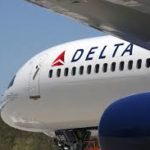
*Price of Aviation Fuel May Rise to N1000 Per Litre
The National Bureau of Statistics (NBS) has disclosed that Nigeria spent N292.56 billion in the importation of aviation fuel, known as Jet A1 in the first three months of the year – January to March 2022.
Oil and gas industry publication, Sweet Crude Report stated that aviation fuel import featured prominently in Nigeria’s trade data for the stated period.
NBS in its Foreign Trade Statistics Report for First Quarter of 2022, aviation fuel, referred to as ‘kerosine type jet fuel’ accounted for 4.96 per cent of Nigeria’s total import of N5.9 trillion, with the commodity ranking the second most imported commodity in the country in the first quarter.
According to the NBS report, aviation fuel import in the first quarter of 2022, represented a significant increase of 287.29 per cent compared to the N75.54 billion spent on its import in the fourth quarter of 2021.
In the fourth quarter of 2021, the NBS disclosed that jet fuel import was the sixth most imported commodity, accounting for 1.27 per cent of the period’s total import figure of N5.94 trillion.
In the first quarter of 2021, there was no mention of jet fuel import in the foreign trade statistics of the NBS, despite the country recording total imports of N6.85 trillion for the period.
Furthermore, the NBS reported that the most notable import item in the period was Premium Motor Spirit (PMS), also known as petrol, which gulped N1.67 trillion of Nigeria’s import bill.
The first quarter 2022, fuel import figure, according to the NBS, represented an increase of 15.97 per cent and 142.73 per cent when compared to N1.44 trillion and N687.74 billion spent on the import of the same commodity in the fourth quarter of 2021 and first quarter of 2021, respectively.
The NBS said: “The value of total imports in first quarter 2022 stood at N5.90 trillion, this decreased by 0.67 per cent when compared with the value recorded in the fourth quarter of 2021 (N5.94 trillion); but increased by 21.04 per cent compared to the value recorded in the corresponding quarter of 2021, which is N4.875 trillion.
“In terms of Imports, in the first quarter of 2022, China, The Netherlands, Belgium, India and the United States were the top five countries of origin of imports to Nigeria. The values of imports from the top five countries amounted to N3.44 trillion representing a share of 58.34 per cent of the total value of imports. The commodity groups with the largest values among the top imported products were ‘Motor Spirit ordinary’ – N1.507 trillion), ‘Kerosene type jet fuel’ – N292.56 billion, and ‘Durum wheat (not in seeds)’ – N258.31 billion.”
THISDAY spoke to the Managing Director of CleanServe Energy Limited, Chris Ndulue who expressed the fear that the price of the product would continue to soar, as long as there is increase in the price of crude in the international market and Nigeria is still importing the product.
“Marketers are spending more money importing refined fuel products and as long as there is demand of aviation fuel, they will continue to import but the price may rise to N1000 per litre or even more. This is affecting airlines but as long as airlines are operating there will be demand of the product but what the airlines will do is to scale down their operations and, of course, they will pass the prices to their customers,” Ndulue who is former Managing Director of Arik Air said.
He said that the solution to the high price of aviation fuel is local refining which would take time before it would be realised, noting that the price of crude is high, the exchange rate is high in addition to other logistics, including shipping cost and disruptions.
“Those importing these products are not making huge profits. The prices are high and they continue to change. The landing cost presently is over N600 per litre. The price may eventually rice to N1000; but if landing cost could be lower; if the importer could get dollars at official CBN rate, the cost could come down,” Ndulue told THISDAY.
This weekend aviation fuel sold for N725 in Lagos, N740 in Abuja and N745 in Kano and there are indications that these prices could increase at very short notice.
THISDAY learnt that airlines are finding it very difficult to continue to operate with the high cost of aviation fuel, as their fares could not be inelastic, noting that it is coming to a stage whereby travellers might stop coming to the airports.
“The number of people travelling continues to reduce as the price increases and I just learnt that some airlines are considering grounding their fleet until the price of aviation fuels begins to come down. But that is another way of saying they would stop operating because it is difficult to stop and then start again within a short interlude,” industry insider told THISDAY.





